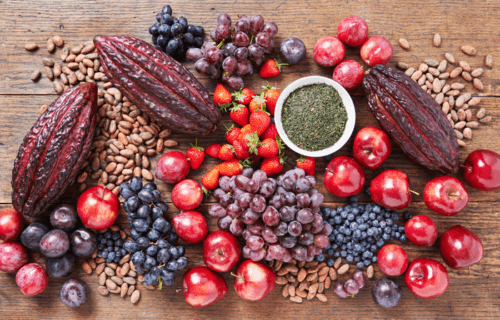MINNEAPOLIS – A morning cup of tea and a glass of wine with dinner could help slash the risk of developing dementia later in life, according to new research. The secret power lies in flavonols, scientists say.
These drinks and several other foods and beverages are rich in antioxidant flavonols — plant chemicals that boost blood flow to the brain, scientists with the American Academy of Neurology explain. Older people who consumed more flavonols had better memory skills. The antioxidants are also found in fruit and vegetables.
“It’s exciting that our study shows making specific diet choices may lead to a slower rate of cognitive decline,” says study author Thomas Holland, MD, MS of Rush University Medical Center in Chicago, in a media release.
Flavonols are pigments. Drinking and eating a rainbow of colors ensures you get a healthy variety in your diet. Dr. Holland and colleagues tracked 961 Americans in their 70s and 80s for an average of seven years.
Cognitive scores of those who had the highest intake of flavonols — roughly one cup of tea a day — declined 40 percent slower each decade in comparison to their peers who consumed the least amount of flavonols.
Which flavonols are best for the brain?
The team broke flavonols down into five different types: kaempferol, isorhamnetin, myricetin, quercetin, and isorhamnetin. Kaempferol, abundant in leafy green vegetables, kale, and tea had the biggest benefit, followed by myricetin — which is abundant in red wine.
After those varieties, quercetin — also in tea and kale, as well as tomatoes and apples — came in third. Isorhamnetin, which is in olive oil, had no effect. The results remained steady after taking into account other factors such as age, sex, and smoking history. Dr. Holland believes the phenomenon is due to the “inherent antioxidant and anti-inflammatory properties of flavonols.”
“Something as simple as eating more fruits and vegetables and drinking more tea is an easy way for people to take an active role in maintaining their brain health,” Dr. Holland explains.
The number of dementia cases worldwide is expected to triple to more than 150 million by 2050. With no cure in sight protective lifestyle behaviors, such as eating healthily and getting plenty of exercise, are currently seen as the best way to prevent Alzheimer’s onset — the most common form of dementia.
Participants completed annual cognitive and memory tests such as remembering words and numbers and filled out food questionnaires. They were also asked about their level of education and how much time they spent doing exercise and mentally engaging activities like reading and playing games.
The volunteers were divided into five groups based on the amount of flavonols in their diet — the lowest being about 5 mg per day and the highest around 15 mg. Rates of memory decline were worked out using an overall global score summarizing 19 cognitive tests.
The study is published in the journal Neurology.
South West News Service writer Mark Waghorn contributed to this report.

